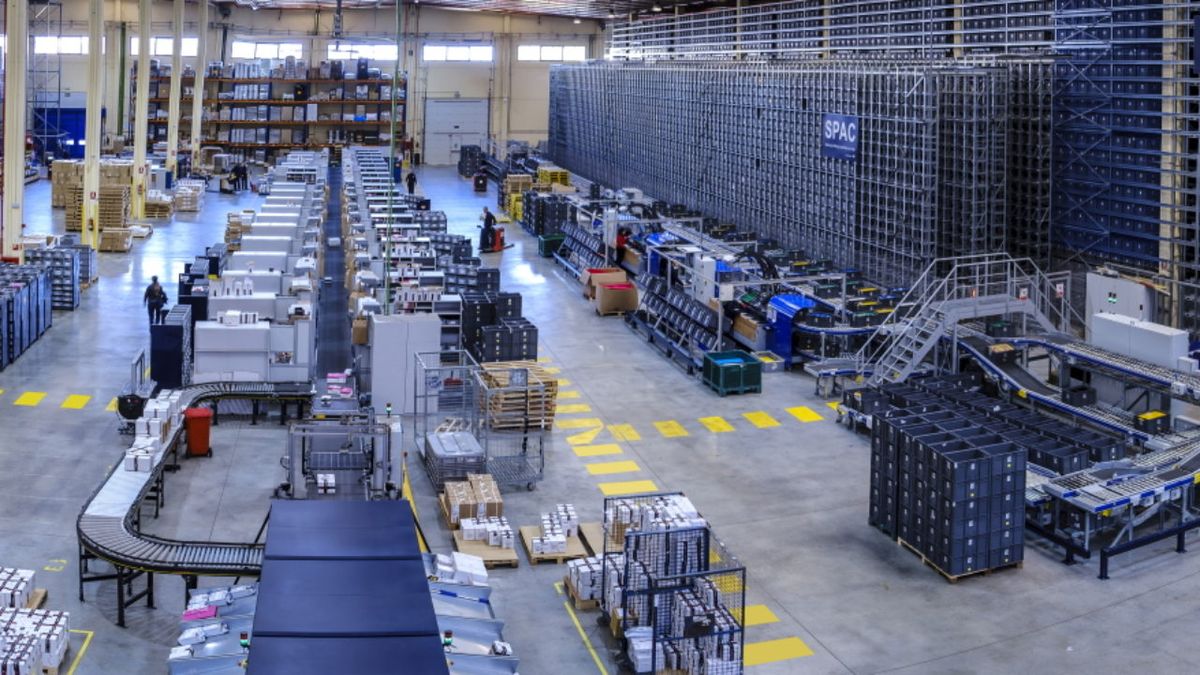More and more industries incorporate Artificial intelligence as a tool to make your processes more efficient. Therefore, the investment amounts allocated to solutions based on this technology They are setting a growing trend.
The sector of logistics is no exception to this rule. Among these companies there is a growing consensus regarding the need to advance in technological updating. According to a recent survey, 51% of companies in the sector plans to invest in storage technology, robotization, automation and Artificial Intelligence developments during the next year.
This emerges from a survey carried out among more than 500 professionals in the sector, within the framework of the recent XXXI Meeting of the Argentine Association of Business Logistics (ARLOG). The study includes responses from all actors in the sector such as freight generators, logistics operators, transportation companies, industry suppliers and consultants, among others.
In the framework of the same meeting, the Spanish expert Andrés Visus Jarne, director of Artificial Intelligence at PredictLand, stated that “94% of business leaders agree that “AI is critical to your business.” Furthermore, he listed the challenges to face to address projects of this nature: identifying use cases that add value, the commitment of the management team and the selection of the correct technology.
For his part, Alejandro Rinaldi, IT director of Andreani Grupo Logístico, commented that “a few years ago we started building a machine learning data model that captures live cameras.” He maintained that the objective is improve efficiency, productivity and decision making.
María de los Ángeles Casal, Marketing Manager of the company, indicated that, with the implementation of “Computer Vision” technology, they achieved “a reduction in the average waiting time, the definition of new self-managed processes and fraud prevention.”
Martín Rabaglia, director of technology and experiences at Genosha and member of IDEA, simulated an AI-based video call that allowed him to talk to his “future self” since the year 2154. During that virtual conversation he demonstrated the different facilities that applications with artificial intelligence offer for the activity.
Ximena Díaz, CEO & Founder of YouUniversal and member of IDEA, commented on the trends and signs of the future. He highlighted the power of well-being and explained that “the future is in offer a personalized customer experience and expand well-being from the individual to the community.”
He also said that “the future is also in predictively personalize experiences and teach to consume more and more responsibly.”
Investment plans and the real economy
The survey carried out by ARLOG among the meeting participants also offered other illustrative results on the logistics sector projects for 2025: 82% of companies anticipated that plans to make investments in different areas of production and services. And 61% said they plan to hire employees.
Regarding investments, the open-response survey allowed us to obtain the following detail: 75% plan to allocate resources to expand their facilities, almost half in new headquarters. 73% anticipated that they will make disbursements in equipment.
Finally, 51% said they plan to invest money in storage technology, robotization, automation and Artificial Intelligence developments.
On the other hand, when asked about the pending issues of the sector81% identified the infrastructure; 52%, to the simplification of procedures; Another 51% referred to the possibility of adding technology to their processes as pending, and finally 34% mentioned connectivity as an issue that still has aspects to resolve.
Reverse logistics: the practice of returning products purchased online is growing
Another study of the sector, without any connection with the ARLOG meeting, accounts for a growing phenomenon called “reverse logistics” and that also requires investments in AI technology in order to meet user demand.
Reverse logistics is linked to the practice of returning products that are purchased through ecommerce. According to figures from the Argentine Chamber of Electronic Commerce (CACE), during the first 6 months of 2024 there was a growth of 248% in online sales operations compared to the first half of 2023.
“The rise of reverse logistics in recent years is mainly due to the growing awareness on the part of consumers to adopt sustainable practices and the constant growth of ecommerce. By increasing online shopping, returns also increase due to delivery failures, address errors, or simply inconveniences with the product, such as the wrong size,” explained Gabriel García, Director of Operations at Celsur Logistics.
“The benefits of reverse logistics are evident for both companies and consumers. For companies, the optimization of these processes allows reducing costs, improving customer satisfaction and compliance with environmental regulations. In addition, it allows the value of returned or discarded products to be recovered, while minimizing the environmental impact. While, for consumers, these processes ensure a more efficient service and a better experience in managing returns and replacements,” the manager concluded.
Experts believe that, in the long term, reverse logistics will continue to play a crucial role in the transformation of the global supply chain. The increasing adoption of models of circular economy and the need to comply with stricter environmental regulations They will boost its relevance in sectors such as retail, manufacturing and technology. Likewise, innovation in processes will allow more effective management of resources and greater profitability for companies.
Source: Ambito




